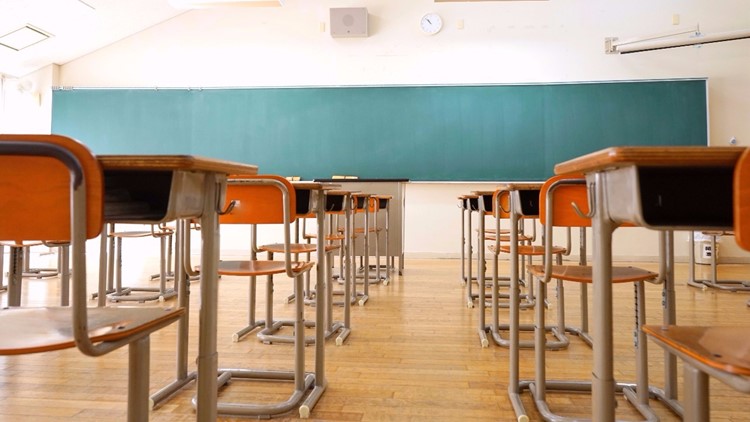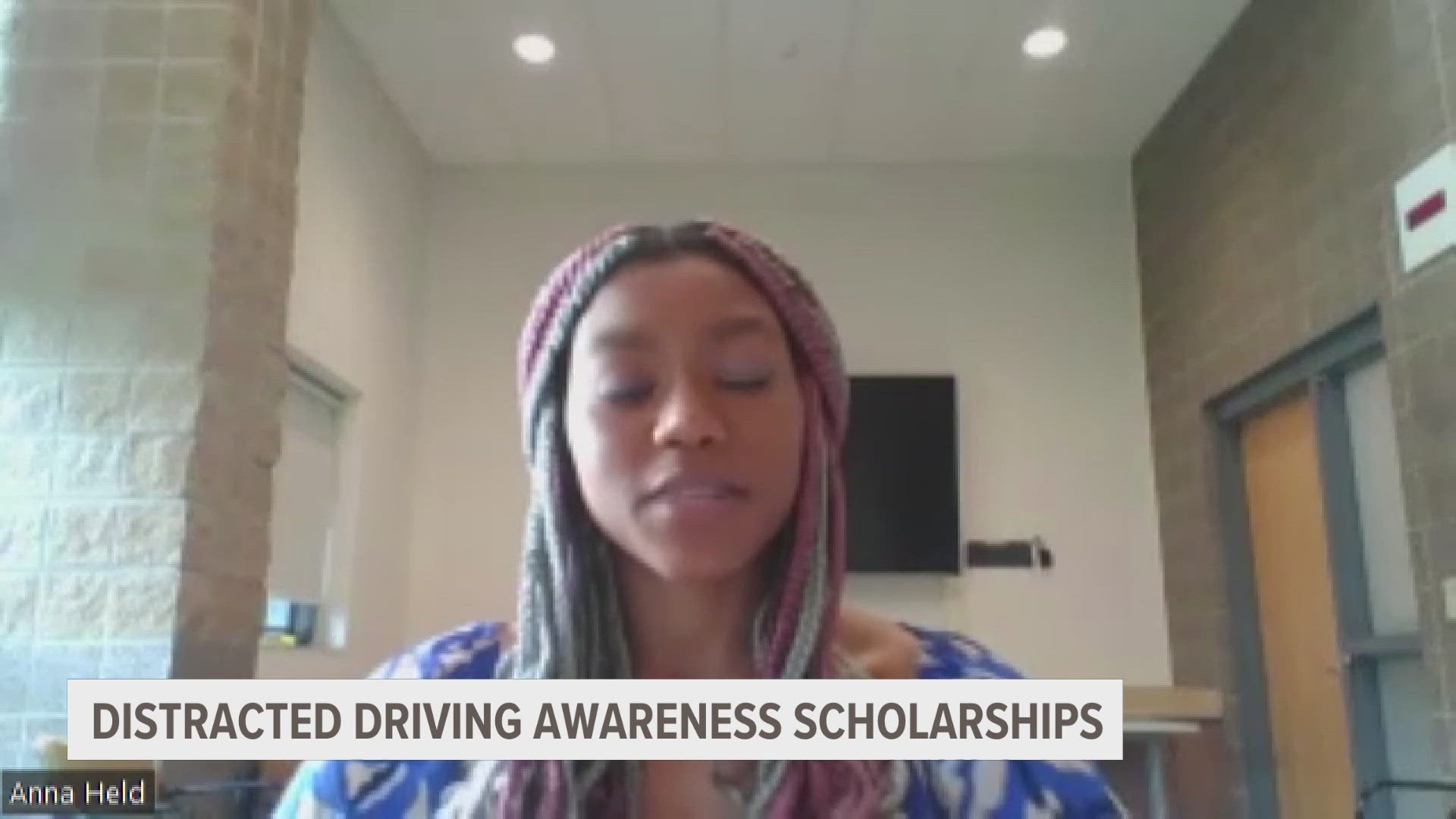President Donald Trump's education budget proposal would pour billions into its top priority, including $1 billion that would go to school districts that promote public school choice, and millions more to expand charter schools and voucher programs.
But it would come at the expense of nearly $5 billion in cuts to a number of programs his administration would either eliminate or severely reduce funding for. Among the programs targeted: before- and after-school programs that provide additional learning opportunities for children; a work-study program that helps needy students pay for college through part-time employment; and a program that prepares low-income K-12 students for college.
The budget calls for spending $1 billion to create a school choice program. The budget would expand grants for the creation of new charter schools from $333 million to $500 million. And it would provide more money — from about $120 million to $370 million — to study and expand vouchers, or programs that provides scholarships to low-income students to attend private schools.
"Funds would support grants to local educational agencies that agree to promote expanded public school choice through the implementation of weighted student funding formulas combined with open enrollment systems," the budget document says.
"If the feds want to support charter school expansion, it's essential it be done in a way that the charters that are supported get better student outcomes, not worse student outcomes," said Lou Glazer, president of Michigan Future, a nonpartisan think tank.
Glazer is a charter school advocate, but he said he's grown concerned that, at least in Michigan, too many charter schools are of low quality.
Teachers unions have criticized the proposed budget.
"They're taking money away from lowering class size and money away for professional development, and using it, not surprisingly, to give public money to private schools and charter schools," said David Hecker, president of the American Federation of Teachers-Michigan.
And the impact on Michigan?
"It's a blow that will be felt in the classrooms," Hecker said.
Betsy DeVos, the U.S. Secretary of Education and west Michigan native, said in a speech Monday night that the federal government will not be mandating school choice policies on states or school districts.
"I firmly believe every state should provide choices and embrace equal opportunity in education," DeVos said, according to excerpts of her speech released by the U.S. Department of Education. "But those are decisions state must make. No two states are the same, and no two states' approaches will be the same — and that's a good thing."
Still, she said, that if a state chooses not to participate in school choice, "That would be a terrible mistake on their part. They will be hurting the children and families who can least afford it."
DeVos was a big backer of charter schools in Michigan and financed a failed ballot initiative in 2001 that sought to allow children in some districts to use taxpayer-funded vouchers to attend private schools. It would have amended the Michigan Constitution, which long has had a prohibition against such practices.
The expansion of the charter school grant program would provide funding for the opening of new charter schools and the replication and expansion of existing high-quality charter schools. Michigan had received millions from this grant program over the years, but in 2015 the state's application for a $45-million grant was rejected — largely because of concerns reviewers noted about a lack of oversight of charter school authorizers.
Dan Quisenberry, president of the Michigan Association of Public School Academies — a charter school advocacy group — said the additional funding could help Michigan.
"It gives us a shot at it again," Quisenberry said. The grant, he said, "has been important in supporting quality."
He said that while he doesn't anticipate that Michigan would see a big increase in the number of charters if it received money from the grant program, he does believe it would ensure that any new schools that open "are really sound."
It would be up to individual states to decide whether to participate in a program that provides scholarship support — or vouchers — to students attending private schools.
"Education Innovation and Research grants are optional for states. States would need to choose to select to participate," Liz Hill, press secretary for the U.S. Department of Education, told the Free Press. "So, in a state like Michigan, it would be up to the state to decide (or change the law) so that EIR grants are made available to students there."
Hill said the budget was organized around three core principles: ensuring every student has an equal opportunity to receive a great education; working to restore power to state and local leaders to better serve students; and prioritizing programs that are proven to drive successful outcomes.
The budget proposal shows $59 billion in discretionary funding for education, a decrease of about 13%. More than 30 programs were eliminated or reduced.
One of the cuts that will hit at the college level is a drastic reduction in federal funding for the Federal Work Study program — from $988 million to $500 million.
While the Trump budget proposal acknowledges that the program "assists needy undergraduate students in financing postsecondary education costs through part-time employment," it says the program "includes outdated provisions in allocating funding and in determining student need that make it inefficient at allocating funds to the neediest students."
At the University of Detroit-Mercy, students can qualify for up to $3,000 a year through the program, said Matt Fortescue, associate director of admissions. Students work part-time in the admissions office, in the library or elsewhere on campus.
"It would be tough to see some of this funding cut," Fortescue said. "A lot of students really need this and use it toward their tuition."
Mark Burnham, vice president for governmental affairs at Michigan State University, called some of the cuts short-sighted.
"We are deeply concerned about the president’s fiscal year 2018 budget proposal released this morning," he said Tuesday afternoon. "The proposed cuts to basic research funding and student aid are not only short-sighted, but they represent a significant threat to our nation’s ability to be globally competitive and to be a world leader of basic science."
Here are some other education programs that would be reduced or eliminated under the proposed budget:
• The 21st Century Community Learning Centers grants. The $1.16 billion in funding would be eliminated. The programs allow for the creation of centers that seek to improve student achievement through before- and after-school programs and summer school programs.
• Supporting Effective Instruction state grants. The $2.34 billion in funding would be eliminated. More than half of the money goes toward professional development programs, while some goes toward reducing class sizes.
• Comprehensive Literacy Development grants. The $190 million in funding would be eliminated. The grants go toward improving literacy instruction for children from birth to grade 12.
• Federal Supplemental Educational Opportunity grants. The $732 million in funding would be eliminated. The program provides assistance to needy undergraduate students to help reduce financial barriers to a postsecondary education.
• Student Support and Academic Enrichment grants. The $277 million in funding would be eliminated. The program funds activities that support educational opportunities such as the arts and STEM programs, safe and healthy students, and the effective use of technology.
• Teacher Quality Partnership program. The $43 million in funding would be eliminated. The program funds efforts to create various pathways for people to go into teaching and to increase the number of teachers.
►Make it easy to keep up to date with more stories like this. Download the WZZM 13 app now.
Have a news tip? Email news@wzzm13.com, visit our Facebook page or Twitter.



